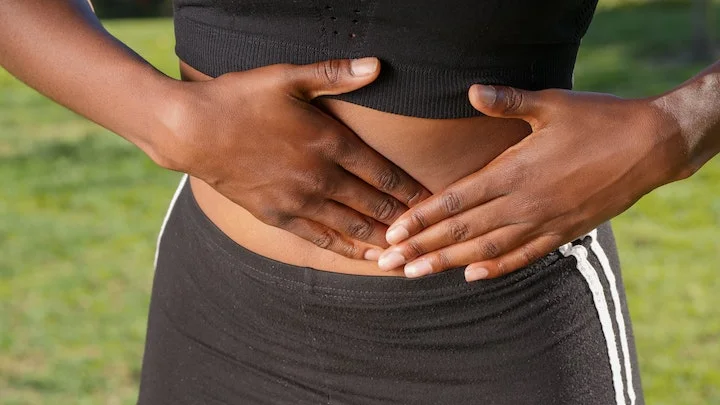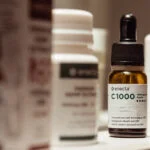If you drink regularly, it’s important to think about the effects of alcohol. Due to how socially accepted and encouraged drinking is, it’s frustrating – after a bit of research – to discover just how destructive alcohol is for health as well as the impact on relationships and life goals.
In the UK, “58% of adults (aged 18+) reported drinking alcohol at least once a week”.[1] Even when you want to stop, there’s a huge pressure to drink around other people and in particular situations.
Obviously, the more you drink, especially if alcohol abuse or addiction develops, the more at-risk you become for health-related conditions. Alcohol-related gastritis is extremely common for people who drink regularly over a number of years.
This is an illness with seriously damaging health effects.
It’s helpful to be aware of what alcohol gastritis is, to understand how to help yourself if you think you may have it, and how to access treatment.
What is Gastritis?

Gastritis is a condition of the digestive tract where the lining of your stomach becomes inflamed or worn down. In some cases, it’s caused by a bacterial infection.
In other cases, gastritis is caused by heavy drinking. The illness leads to stomach pain and various other uncomfortable symptoms.
If left untreated gastritis can lead to a medical emergency. It’s really important to seek professional help if you have any of the symptoms.
What is alcoholic gastritis?

Alcohol-induced gastritis
Alcohol is a strongly toxic substance that, generally speaking, is unhealthy due to its impact on physical and mental health.
Alcohol gastritis is where alcohol destroys your stomach lining. This means that stomach acids that are meant to digest food end up attacking the stomach lining.
It makes you more sensitive to foods and can lead to anaemia because you’re unable to absorb vitamin B12.
Research shows that “gastric mucosa inflammation was observed in all patients chronically drinking alcohol”. There’s a clear link that years of alcoholism cause gastritis.[2]
Illegal drug use can lead to gastritis as well.
Other types of gastritis
Atrophic gastritis
Atrophic gastritis is actually an autoimmune disease. It’s caused by long-term mucosa inflammation and exposure to the Helicobacter pylori bacteria. The body attacks itself, isn’t able to absorb essential vitamins like vitamin b12, and is unable to produce red blood cells. It can lead to stomach cancer if left untreated.
Stress-induced gastritis
Gastritis caused by stress halts the blood flow to your stomach lining. This can actually lead to injury and illness as the stomach acid attacks its lining. This type of gastritis is caused by mental and emotional triggers that affect your stress levels.
Triggers and causes of alcoholic gastritis

Alcoholic gastritis is actually a form of acute gastritis meaning it’s caused by something you’re putting into your body that has immediate and uncomfortable symptoms. It’s commonly linked to drinking alcoholic beverages as well as some conditions.
There are diet-related triggers (i.e. if you’re sensitive to acidic food), genetic disorders that make it more likely (i.e. autoimmune disorders), and taking non-steroidal anti-inflammatory medications), or having bacterial infections can increase the likelihood.
How much alcohol is needed to destroy the stomach lining?

Any level of alcohol can lead to stomach upset and irritation of the gastrointestinal tract.
It’s clear from research, however, that severe alcohol addiction and alcohol use that lasts over a number of years will cause stomach lining inflammation.
As well as this, alcohol increases the amount of acids in the stomach which then attack the impaired stomach lining.
It’s best to keep alcohol levels to a small amount in order to avoid irritation.
Common symptoms of acute gastritis

In acute gastritis, the stomach lining is already weak and digestive acids attack it. This causes severe pain and swelling. Not only is alcohol a cause but so are drugs, as well as certain foods.
It’s an intense illness with severe effects but can reduce after two weeks of medical treatment.
Symptoms include:
- Hiccups, burping, and flatulence
- Bloating
- Abdominal pain
- Burning sensation in the stomach
- Appetite loss
- Nausea and vomiting
The symptoms of chronic gastritis

Chronic gastritis is a slow process where the symptoms develop over a length of time.
It can go on for years and might not be identified quickly:
- Acid reflux
- Pains when eating
- Vomiting blood
- Blocked bowels
- Black stools
- Gastrointestinal tract bleeding
- Stomach discomfort (leading to ulcers)
- Mucous membrane tears
- The development of anaemia
How do doctors diagnose alcoholic gastritis?

There are a variety of ways that a doctor might identify alcoholic gastritis.
The most common tests include:
- A breath test to identify whether the bacteria helicobacter pylori (H. pylori) is present
- A blood test
- Testing a sample of faeces
What are the long-term effects of alcoholic gastritis?

Long-term use of alcohol, especially if you have regular to addictive use introduces a wide range of health consequences.
In relation to gastritis, the following are common:
- Anaemia
- Stomach ulcers
- Liver damage
- The development of stomach cancer
At its worst, gastritis can lead to death.
Lifestyle habits that help prevent and reduce symptoms of gastritis

Any behaviour can become habitual. As humans, alcohol and drugs are usually taken as a form of coping.
While this might seem an easy and quick fix, it obviously comes with a serious risk of harm to mental and physical health, as well as the risk of addiction.
If you’re developing signs of gastritis or have been drinking alcohol frequently and for a long time then it’s important to make lifestyle changes. These will help reduce or prevent symptoms of gastritis as well improve your health overall.
Lifestyle habits that help reduce gastritis:
- Reduce your caffeine intake
- Improve your diet by reducing take of acidic, fatty, and spicy foods and fizzy drinks
- Don’t eat in the 3-4 hours before going to bed
- Stop smoking
- Use an extra pillow in bed so that your top half is slightly raised. This helps stop acid from rising into your throat
- Weight loss will help if you’re overweight
- Stop drinking alcohol
What are the risk factors for alcoholic gastritis?

Developing alcoholic gastritis is obviously linked to excessive drinking and eliminating alcohol, in the majority of cases, will ease its symptoms. However, for some people, there are risk factors that make it harder to eradicate the ongoing effects of alcohol-caused gastritis.
The risk factors are:
- Having drunk alcohol for years
- Using illicit drugs
- Having an unhealthy diet filled with unhealthy fats and preservatives
- Having used acid reflux medication for a long time
- Being under regular stress
- The effects of having an autoimmune disease
Treatment for alcohol gastritis

In relation to treatment, there are two main things you need to think about if you think you might have alcohol-related gastritis.
Firstly, you need help to support your physical health and treat gastritis. You need to see a doctor. This is imperative in order to get the medication necessary to treat symptoms.
This might include antibiotics, anti-inflammatories, and medicines for indigestion such as anti-acids.
Getting medical guidance and treatment will also help prevent increasingly worse health conditions.
Secondly, if you have developed problematic or addictive alcohol use, then you’ll need to stop drinking. This, of course, can be very difficult and if alcohol dependence has developed, dangerous, to attempt alone.
To get treatment for alcohol you can access NHS or private clinics. The NHS offers outpatient clinics where you get a couple of one-to-one sessions and are invited to weekly group sessions.
Local drug and alcohol services are available in towns throughout the UK and support people in active addiction and those in recovery.
A private rehab is the way to go if you’re keen to quit alcohol immediately. Every resident is at the point of wanting to quit. Staff assess you and develop an individualised plan of treatment. You receive psychological and alternative therapies every day.
As well as this, there are both group and individual sessions. At a private clinic, you develop deep self-awareness and gain the tools to manage cravings, addiction, and mental health into the future.
Get Help for Alcohol Addiction
If you have an alcohol use disorder and want support to find out where to go for private treatment, contact OK Rehab.
Our team of advisors support people throughout the country to find the rehab clinic most suited to their needs.
As well as this, we can support you in arranging and communicating with the clinic up to your admission date to make your first step and the transition easy.





